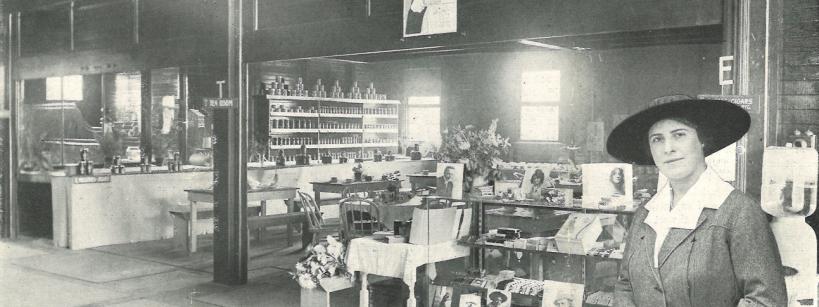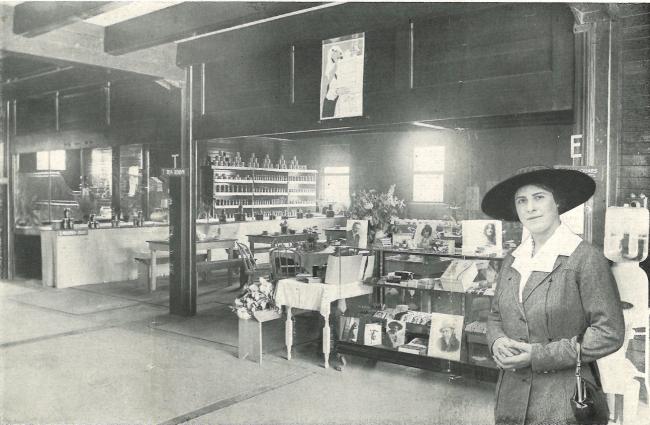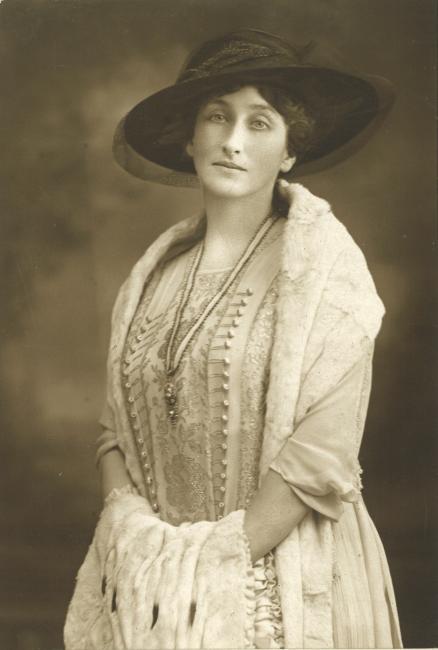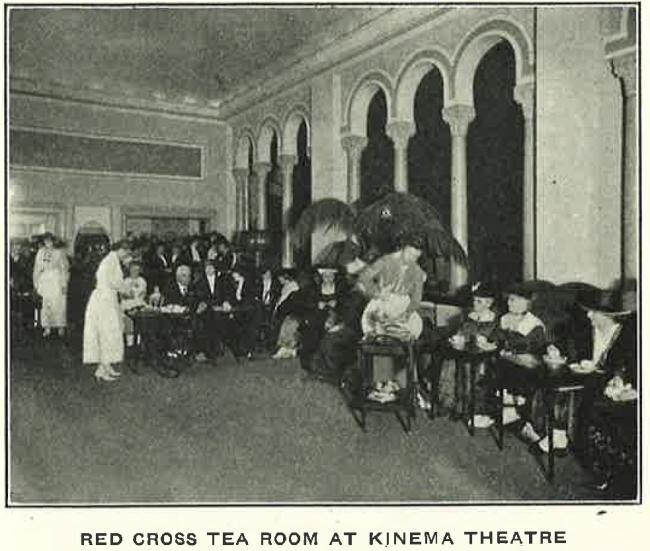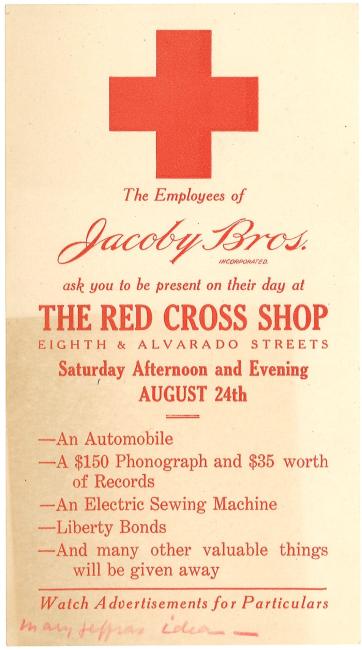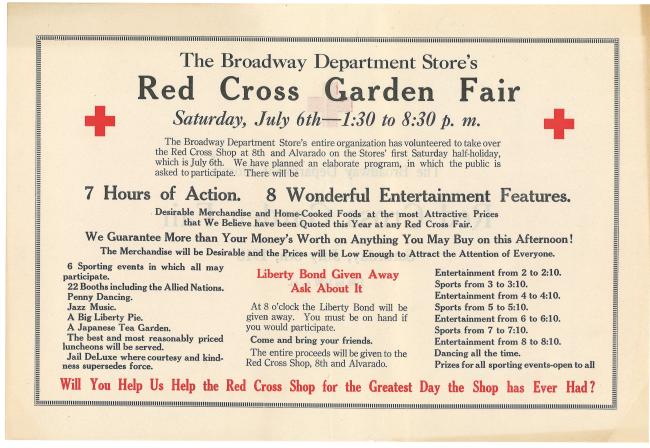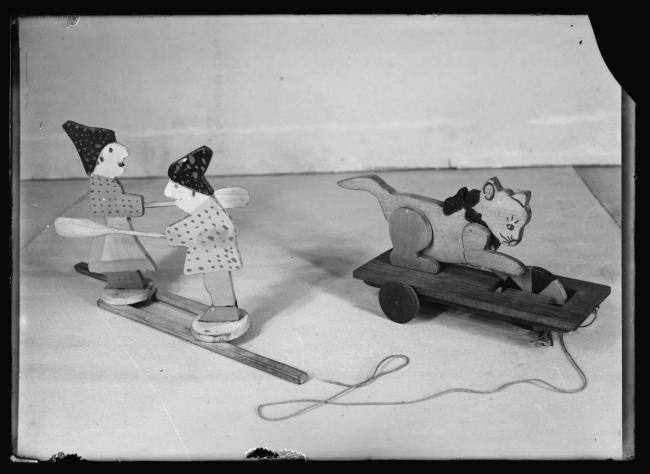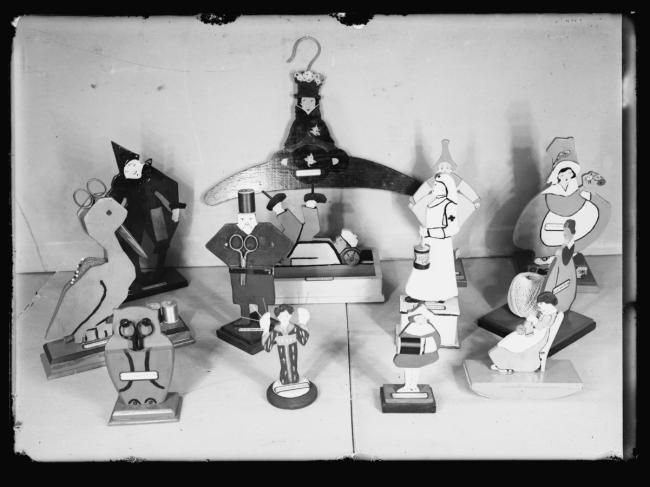Further, beyond working to contribute to the Red Cross Shop’s sales and fundraising operations, volunteers organized workshops to produce medical supplies for donation. Volunteers progressed through nine lessons to learn how to cut and create surgical dressings, before undertaking successive examinations to become pupil teachers and finally full-fledged Instructors. Thus, women educated each other and learned how to produce medical supplies vital to Red Cross operations and World War I efforts. On October 20, 1917, E.D. Taggart reported that, “Already two hospital units have been supplied – and now everyone is so relieved for the supplies are being shipped directly to France. Since March 1, 70,000 dressings have been made, some forty auxiliaries having contributed to the work done at headquarters.”
Beyond the volunteers who donated their time and labor, the Red Cross Shop owed its success to local community involvement. Although initial rumors indicate concern that department stores and other businesses would object to having to compete with the Red Cross Shop, these rumors were quickly laid to rest. A booklet on The Red Cross Shops and Tea Rooms of Los Angeles includes numerous letters of support from the Office of the Mayor, the Chamber of Commerce, and the Merchants and Manufacturers Association. In the summer of 1918, businesses such as Jacoby Brothers Incorporated, the Broadway Department Store, and Bullock’s collaborated with the Red Cross Shop to produce fundraising events including live entertainment, raffles, and sporting events and games.
Last, but certainly not least, public schools joined in contributing to the Red Cross Shop’s fundraising efforts. In a 1918 article, Laura G. Smith reported that, “Before Christmas the manual training and domestic science departments made toys, clothing, and many other things for the Christmas trade” and that “. . . the high schools of the city had charge of the Shop on successive Saturdays, providing luncheon and tea for the day, furnishing the programme, the articles for sale, and ‘buyers’ as well.” Thus, beyond serving as a second-hand store with a charitable mission, the Red Cross Shop was a bustling hub of community involvement, cooperation, and service. In addition to the contributions of its volunteers, the Red Cross Shop and its mission benefited from the support of local government, businesses, and schools.
Despite the necessities of quarantine, there are clear parallels between the spirit that animated supporters of the Red Cross Shop and local communities banding together to ease hardship in a time of crisis. While sheltering in place and practice physical distancing, many are also turning to social media and other digital platforms to share support, joys, and sorrows. Whether sewing masks at home, organizing social time over voice/video chat, or donating time and resources to help fulfill needs that pre-existing infrastructures do not meet, individuals and communities are demonstrating mutual aid and support in a time of crisis, much as volunteers and supporters of the Red Cross Shop did in their own time.
